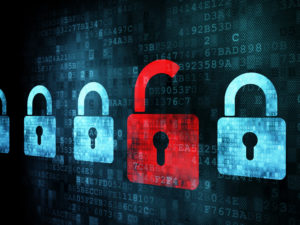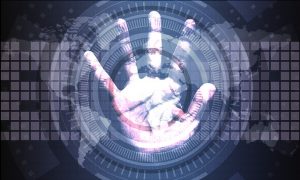The limitless expansion in technological advances is a double-edged sword. Whereas we can achieve more in our daily life and handle our responsibilities with ease, we are now more vulnerable to cybercrime attacks. Whether it is your phone, computer, or tablet, we are all susceptible to becoming victimized by cybercriminals. Since the beginning of the pandemic the rise in cybercrime has been astonishing. It has been reported that attacks on banking systems rose by 238% and cloud-based attacks rose to 630% just between January-April of this year alone. Hacking is described as the attempt to exploit a computer system or a private network. To put it simply; hacking is the unauthorized access to private data with the intention to use the data for illicit purposes. Now more than ever we (businesses and individuals) need to make cybersecurity and the prevention of cybercrimes a priority.
Common Types of Hackers and Hacking Techniques
Based on the intentions of the hackers they are typically categorized as either White Hat or Black Hat hackers. However, there are many different types of hackers that don’t necessarily fall within that “white or black” description. Below are some of the most common types of hackers:
Black Hat (crackers) – Hacking with the intention to gain unauthorized access to a system or data to harm operations or ransack private data.
White Hat – Hackers with the purpose of discovering vulnerabilities in current systems and safeguarding from future threats – with the owner’s knowledge.
Grey Hat – These hackers typically are a blend of both black/white hat hackers. They purposefully, but without malicious intent, exploit security weaknesses without the knowledge of the owners. The goal for these hackers is to gain appreciation and hopefully a fee for their discoveries. They are not to be confused with Ethical Hackers (White Hats) as their actions are illegal.
Red Hat – These hackers are the vigilantes of hacking. Red Hats seek to disarm and destroy Black Hats. Rather than notifying the appropriate channels, Red Hats look to launch aggressive attacks against Black Hats in the hopes of destroying their computers and resources.
Blue Hat – These hackers typically are an outside computer system security consulting firm and are invited by Microsoft to discover vulnerabilities in their Windows system and fix the weaknesses.
Green Hat – Typically describes someone who is new to hacking with very limited experience or knowledge of technology and hacking.
The only thing that ties all these hackers together is the fact that vulnerabilities in systems were exposed, regardless of the hacker’s intentions. The most common techniques that hackers use to achieve their goals are social engineering & phishing, malware-injecting devices, missing security patches, cracking passwords, and Distributed Denial-of-Service (DDoS).
- Social engineering & phishing is the attempt to get you to share personal information, usually by impersonating a trusted source. Emails are a leading culprit when it comes to phishing and socially engineered attacks.
- Malware-injecting devices is the use of physical plugins (compromised USB cord, USB device, mouse cords, etc) to infiltrate the hardware system and sneak malware onto the device.
- Missing security patches is when the hacker takes advantage of outdated security software in the system. 18% of all network vulnerabilities are caused by unpatched applications.
- Cracking passwords utilizes spyware, usually “keylogging”, that monitors every keystroke made on that device, then the program surmises the possible password combinations that are used.
- Distributed Denial-of-Service (DDoS) is the hacking technique aimed at taking down websites. This prevents the user from accessing or delivering their service. DoS attacks inundate the target’s server with massive inflation in traffic resulting in an overloaded server.
What Has Hacking Cost Us and How to Prevent Attacks
In 2020 a report showed that out of the 4,000 confirmed breaches, hacking was responsible for more than half of them. It is currently anticipated that 33 billion private records will be stolen by 2023. With hacker attacks occurring on average every 39 seconds, it is not difficult to see the alarming rate of concern rising amongst the public. With the surge of cybercrime, private and public enterprises are driving up their IT budgets to try and counteract cyberattacks. Reports indicate that the global spending for cybersecurity services will reach beyond $1 trillion, by 2021.
Some of the most common pitfalls that can make you an easy target for hackers include:
- Not password protecting your personal Wi-Fi or using a public Wi-Fi
- Not automatically updating software
- Clicking links from questionable email sources
- Simple or the re-using of passwords
- Not using an anti-virus software
- Not utilizing a multi-factor authentication
The easiest remedies to avoid a hacker attack:
- Updating software frequently- this keeps hackers from being able to access your computer through outdated programs which can be easily exploited
- Keep the most up-to-date security programs, including anti-malware software to protect your data
- Destroy all personal data on any hardware system you plan on letting go
- Create difficult passwords and authentication hints
- Keep sensitive data off the cloud
- Disable connections when you aren’t using them
- Utilize multi-factor authentication when you can
- Sign up for account alerts
By taking these extra little steps you could potentially be saving your private data from a hacker with malicious intent.
Certified Ethical Hackers (White Hats)
Certified Ethical Hackers are qualified IT professionals that demonstrate knowledge in accessing computer systems and looking for weaknesses and vulnerabilities that might be targeted by outside sources with malevolent intent. Certified Ethical Hackers are the crème de la crème in the eyes of IT decision makers as they can typically save companies not only financially, but also, potential reputable harm, or discord amongst the daily operations. With over 40% of IT decision makers claiming difficulties in finding the right cybersecurity candidate now is the time to look into becoming certified. With a higher than average growth rate of 31%, according to the U.S. Bureau of Labor Statistics, and the alarming rate at which cybercrime is rising, this IT position provides job security as well as the immense ability to grow. The typical Certified Ethical Hacker salary starts in the low $90k range but with additional certifications that pay scale substantially rises. Now is the time to invest into a position that not only challenges you but also provides you with security—no pun intended.
If you are interested in learning how to become a Certified Ethical Hacker click here.
If you are interested in other cybersecurity certifications click here.









 Let’s begin with “Information Security” and “Cybersecurity”. There are two expressions that people often use somewhat interchangeably. They are not quite the same though, as we have already
Let’s begin with “Information Security” and “Cybersecurity”. There are two expressions that people often use somewhat interchangeably. They are not quite the same though, as we have already